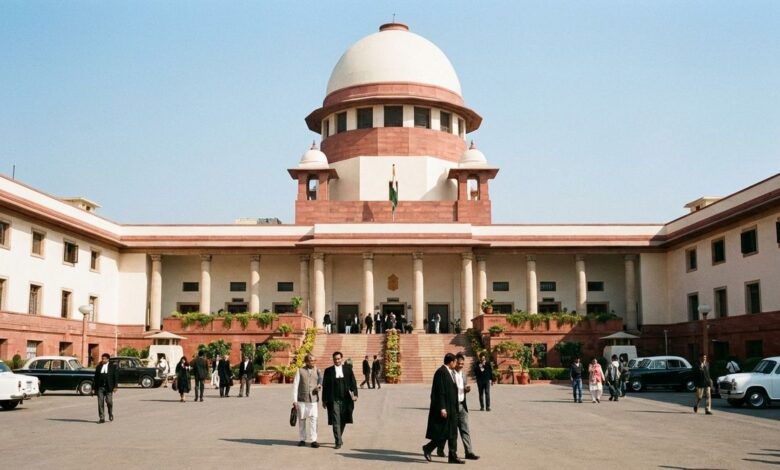Does Having Aadhaar Guarantee Voting Rights Supreme Court Tough Question Puts Opposition in Trouble

Aadhaar Voting Rights: Amidst the ongoing debate regarding the revision of voter lists and the enrollment of new voters across the country, the Supreme Court of India has made a highly significant observation. Does possessing an Aadhaar card automatically make a person eligible to vote in Indian elections? Answering this fundamental question, the apex court’s remarks hold substantial implications for both the Election Commission and opposition parties. Recently, during the hearing of petitions filed against the Election Commission’s ‘Special Intensive Revision’ (SIR) drive, the court clarified that an Aadhaar card can never be definitive proof of citizenship.
What is the Context?
The Election Commission of India (ECI) is currently conducting a special drive aimed at ‘purifying’ the voter list across the country, termed the ‘Special Intensive Revision’ (SIR). The primary objective of this campaign is to remove fake or duplicate names from the voter list and update the database.
However, this process has sparked intense political controversy:
- Opposition’s Objection: State governments and opposition parties in states like West Bengal and Kerala have alleged that under the guise of list revision, names of specific communities or genuine voters are being deliberately removed.
- Legal Challenge: Multiple petitions were filed in the Supreme Court challenging this process of voter list revision based on these allegations.
Supreme Court’s Stern Observation
During the hearing, the Supreme Court adopted a strict and clear stance regarding the relationship between Aadhaar cards and Indian citizenship. The court’s observations are as follows:
- Aadhaar is Not Proof of Citizenship: The Supreme Court unequivocally stated that holding an Aadhaar card is not proof of Indian Citizenship. Aadhaar serves primarily as proof of Identity and Residence, issued mainly to facilitate the delivery of government Welfare Schemes.
- Voting Rights for Foreign Nationals: The court questioned whether a foreign national, who might have obtained an Aadhaar card for ration or other facilities, should automatically get the right to vote in Indian elections. The court’s answer was a firm ‘No’.
- Basis of Voting: Merely having an Aadhaar card in one’s pocket does not entitle anyone to claim inclusion in the voter list.
Election Commission’s Stance
Clarifying its position in court, the Election Commission stated that it is not merely a ‘Post Office’. This means the Commission cannot blindly accept someone as a voter just because they have submitted Form-6 (voter application form) along with an Aadhaar card.
According to the Commission’s argument:
- Aadhaar can only be used to verify the identity and address of the applicant.
- Before including a name in the voter list, the Commission must ensure whether the person is indeed a citizen of India. For this, thorough verification of other documents is essential.
Legal Position and Constitution
The legal framework for acquiring voting rights in India is crystal clear. Under Article 326 of the Constitution and the Representation of People Act 1950, two main conditions must be met to become a voter. The table below simplifies this:
| Details | Conditions |
|---|---|
| Citizenship | The person must be a Citizen of India. |
| Residence | The person must be an Ordinary Resident of that specific constituency. |
| Role of Aadhaar Card | It is not proof of citizenship, hence it cannot solely guarantee voting rights. |
The Supreme Court’s observation makes it evident that the Election Commission possesses full constitutional authority for the verification of voter lists. No one can become a voter simply by showing an Aadhaar card; proving citizenship is mandatory. Hearings on separate petitions from states like Tamil Nadu, Kerala, and West Bengal are scheduled for December 1, 2, and 9. However, the court’s current stance indicates that impeding the voter list revision process based merely on suspicion will be difficult for the petitioners.

